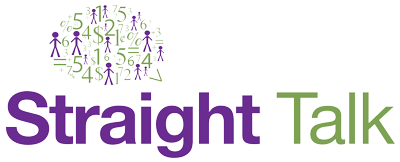Who do you market to?
Who should you market to?
Are they the same? If so, was that planned?
If they’re not the same, why aren’t they?
These questions are critical to the success of any marketing program.
On the other hand, what if your package… your total offer, isn’t that good? Let’s say it’s just average. Let’s also assume that your prices are not the lowest, but they’re at least in the ballpark.
You’ve really got nothing special that the rest of your competition can’t offer. But you have a great list to market to. Well-qualified, highly motivated prospects with the authority and the ability (money) to buy.
With that kind of market you just about can’t lose.
Targeting your marketing efforts to the right people can make or break your entire advertising or marketing campaign. And if you’re a small business, you can’t afford to have that happen too many times. It’ll drive you right out of business!
Everyone who inquires about your products or services, or who makes a purchase from you should go on a list.
You should capture, at the very least, their name, address, phone number, date of purchase, what they bought, and how much they spent. If you’re using the internet, you should also try to capture their email address.
If you do the same thing… get contact information from all your customers, the next time you want to make a special offer or run a certain promotion, you’ll have a very targeted list of people who have used your products or services in the past, or who have at least inquired about them.
And remember, all things being equal, people would rather do business with people (or businesses) they know, they like, and they trust.
Another thing you can do is send a Customer Questionnaire to all your existing customers asking for information that can help you determine who buys, what they buy, and why they buy from you.
By analysing the characteristics of the people on this list, you can then develop a demographic model of other people who would be likely candidates for the kinds of things you offer.
Since you’re not marketing to the general public, very specific offers can be made to these target markets.
Not only will your hard marketing costs be considerably less, your response rates will be significantly higher. You can spend a lot of needless time and money marketing to the wrong market.
If, for instance, you advertise that you have the lowest prices, you’ll undoubtedly attract people who are price shoppers. That’s not altogether bad, but if you’re looking for long-time relationships with your customers, low price shoppers may not be the best market for you to attract.
As soon as a competitor advertises a lower price, or gives a little more away for the same price you’re charging, your customer is likely to bid you adios.
Long-term relationships presuppose loyalty. Loyalty from both the customer, and loyalty from the business.
If, as a business, you provide exceptional and continuing value to your customers, they, in turn, will continue to buy from you as long as the need exists.
By identifying the kinds of customers you wish to acquire, and then targeting those kinds of prospects, your customer acquisition costs will be reduced, and your customer retention percentages will soar.





